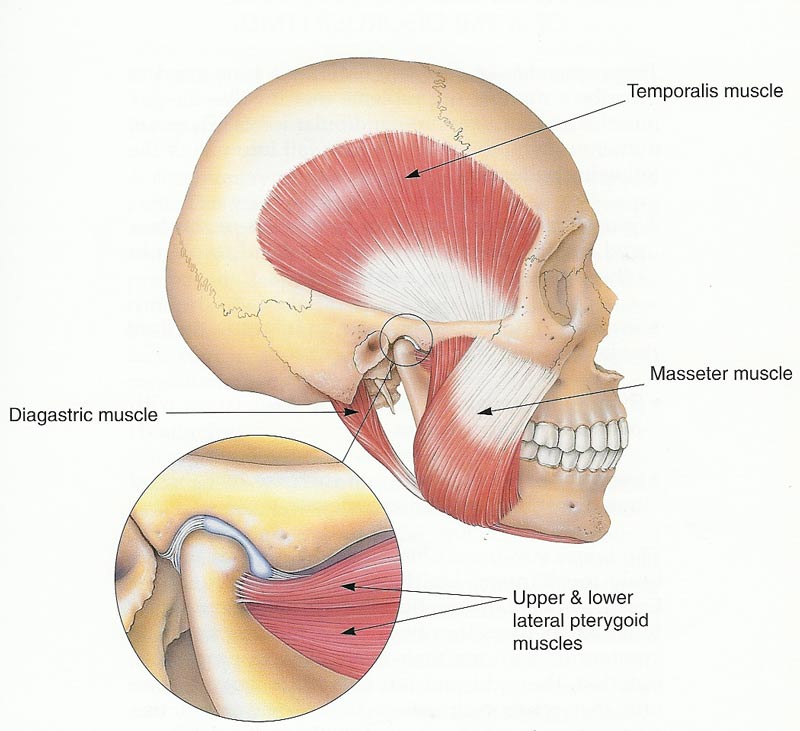The temporomandibular joint
- The TMJ or jaw joint is located in front of the ear and is attached to the ear canal
- When the TMJ becomes inflamed, injured or stressed it can cause pain in the ear or face
- Discomfort is often an ache mixed with sudden sharp pains and can occur at any time of the day
- Ear examination is usually normal, as is hearing
- Occasionally people who have a TMJ disorder incidentally also have tinnitus or ringing in the ear next to the inflamed joint
TMJ pain causes
There are many causes of TMJ symptoms:
- Common causes include clenching or grinding one’s teeth at night – these patients often wake up with severe headaches and earaches
- Arthritis
- Poorly fitting dentures
- Recent dental surgery
- Trauma to the jaw or TMJ area
- Uneven chewing
- Frequent gum chewing
- Unusual habitual movements of the jaw
TMJ treatment
To ease TMJ pain and discomfort the following measures are recommended:
- Eat a soft diet and chew food evenly – do not favour one side or the other
- Avoid gum chewing
- Apply a hot water bottle or heating pad to the affected side – heating pads should only be used for 20 minutes at a time
- Medication commonly prescribed for TMJ syndrome includes Panadol, Aspirin, Celebrex, Naproxen, Nurofen, or Voltaren – take as directed
- Avoid putting pressure on the jaw joint – avoid clenching or grinding the teeth; patients who grit or grind their teeth at night should visit their Dentist or Oral Surgeon who can make them a mouth guard or bite block which prevents grinding of the teeth at night
If these measures do not ease TMJ pain make an appointment to see your Dentist or Oral Surgeon for further evaluation – a regular dental checkup is advisable.




